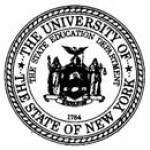- 업종: Education
- Number of terms: 21544
- Number of blossaries: 0
- Company Profile:
The Regents are responsible for the general supervision of all educational activities within the State, presiding over The University and the New York State Education Department.
The University of the State of New York is the nation's most comprehensive and unified educational system. It consists ...
A poem by Rudyard Kipling written in 1899. It is also the name given to the idea that the culture of the native populations where European imperialism was occurring were inferior to western nations. Some interpreted Kiplings poem to mean that it was the duty of imperializing nations to bring western culture and sensibility to the savage native populations that were encountered in far off lands.
Industry:History
Also known as Austria-Hungary, or the Hapsburg Empire, as it was ruled by the Habsburg monarchy from 1867 to 1918. Austria-Hungary extended over most of central Europe. It was composed the modern day countries of Austria, Hungary, Slovakia, and the Czech Republic, as well as parts of present-day Poland, Romania, Italy, Slovenia, Croatia, Bosnia and Herzegovina, and the Federal Republic of Yugoslavia.
Industry:History
Niccolò di Bernardo dei Machiavelli (May 3, 1469 – June 21, 1527) Niccolò Machiavelli (May 3, 1469June 21, 1527) was an Italian political philosopher during the Renaissance. As a civil servant in Florence, Machiavelli became the key figure in realistic political theory, crucial to later studies in political science. His most famous book, Il Principe (The Prince), was a work intended to be an instruction book for rulers. Published after his death, the book advocated the theory that whatever was expedient was necessaryan early example of utilitarianism and realpolitik.
Machiavelli's theories were elaborated in the 20th century. Machiavelli was also the author of many "Discourses" on political life in the Roman Republic, Florence, and other states, in which he demonstrated mastery of other views. However, the adjective "Machiavellian" is seen by most experts to inaccurately represent him and his views, having come to describe narrow, self-interested behavior pursued by interest groups. Along with Leonardo da Vinci, Niccolo Machiavelli is considered the ideal prototype of the Renaissance man. While this epithet may be more appropriate than describing Machiavelli as "Machiavellian," it may be fair to state that he possessed a "machiavellian intelligence."
Industry:History
An international organization concerned with the crude-oil policies of its member states. This organization was founded in 1960, and has 11 members, including Kuwait, Algeria, Iran, Iraq, Indonesia, Libya, Nigeria, Qatar, Saudi Arabia, United Arab Emirates, and Venezuela. Due to their control of most of the worlds oil supply, OPEC has a strong influence on many industrialized nations.
Industry:History
(1712-1778) French writer and Enlightenment philosopher who wrote a book called, The Social Contract, where he stated that people were basically good, and that society, and its unequal distribution of wealth, were the cause of most problems. Rousseau believed that government should be run according to the will of the majority, which he called the General Will. He claimed that the General Will would always act in the best interest of the people.
Industry:History
(1689-1755) Enlightenment thinker from France who wrote a book called, The Spirit of the Laws in 1748. In his book, Montesquieu describes what he considers to be the best government. He states that government should divide itself according to its powers, creating a Judicial, Legislative, and Executive branch. Montesquieu explained that under this system each branch would Check and Balance the others, which would help protect the people's liberty.
Industry:History
In the early 19th century, Great Britain began importing opium, processed from poppy plants grown in the Crown Colony of India, into China. Chinese officials attempted to ban the importation of the highly addictive opium, but ultimately failed. The British declared war on China in a series of conflicts called the Opium Wars. Superior British military technology allowed them to claim victory and subject the Chinese to a series of unequal treaties.
Industry:History
Buddhism developed in India, and is based on many of the core concepts of Hinduism.. Buddhists believe in an endless cycle of reincarnation, or samsara, which is similar to beliefs of Hinduism. However, Buddhists do not believe that deities are responsible for the phenomenon. In addition, the Caste System is rejected by Buddhists who believe instead that one is reincarnated until they can achieve nirvana, best described as spiritual enlightenment.
Industry:History
(1787?-1828) During Shakas rule, the Zulu broadened their land claims throughout southern Africa. Eventually, the Zulu came into the conflict with the British army as they expanded their control over southern Africa and invaded the homeland of the Zulu. Despite early victories, the Zulu were eventually defeated by the technology and vast resources at the command of the British troops. Soon, all of southern Africa would come under British control.
Industry:History
Confucius lived in China during the Chou Dynasty, when there was mass disorder and confusion and degrading moral standards. Confucius was appalled by what appeared to be the fracturing of Chinese society. He believed that the only cure was to stress a sense of social order and mutual respect, a philosophy that later became known as Confucianism. Confucianism teaches that there is a natural social order to society which can best be explained through the Five Relationships.
Industry:History
